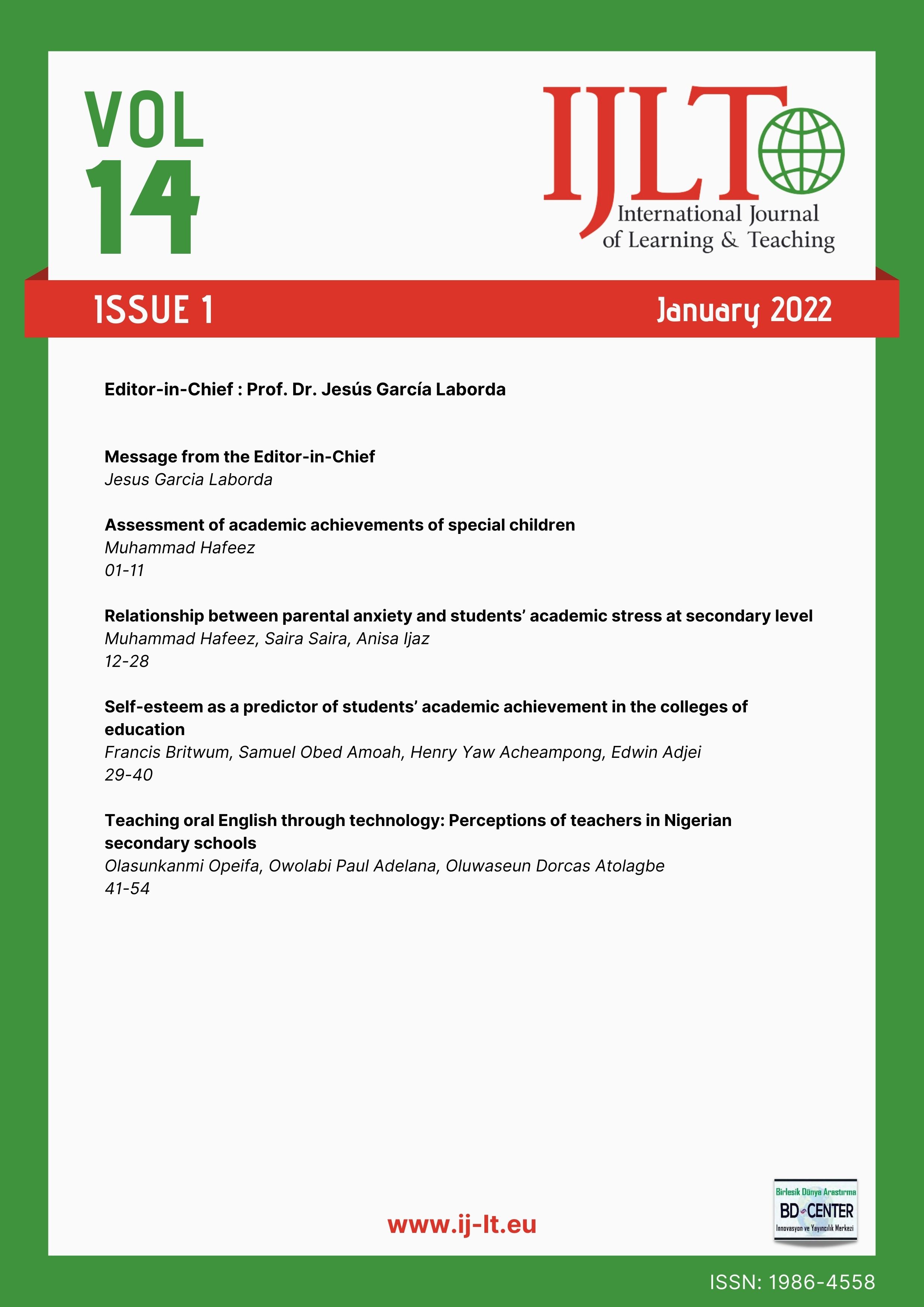Self-esteem as a predictor of students’ academic achievement in the colleges of education
Main Article Content
Abstract
The quality of students’ academic achievement (AA) determines the effectiveness in the College of Education (CoE). In the educational sector, resolving low confidence or attachment issues that affect AA may necessitate addressing self-esteem. The main purpose of the study was to examine self-esteem (SE) as a predictor of students’ AA in the CoE in Ghana. The descriptive cross-sectional survey design within the positivist paradigm was employed. Multi-stage sampling procedures were used in the sample selection process. In all, 325 students were selected from six CoE to participate in the study. The questionnaire was used to collect data from the respondents and was tested using inferential statistics (Structural Equation Model, and Moderation analysis). The findings showed that SE predicted students’ AA. The result discovered that gender does not moderate the relationship between SE and AA of the students.
Keywords: Academic Achievement (AA); CoE; Gender; Self-Esteem (SE).
Downloads
Article Details

This work is licensed under a Creative Commons Attribution 4.0 International License.
Authors who publish with this journal agree to the following terms:
- Authors retain copyright and grant the journal right of first publication with the work simultaneously licensed under a Creative Commons Attribution License that allows others to share the work with an acknowledgement of the work's authorship and initial publication in this journal.
- Authors are able to enter into separate, additional contractual arrangements for the non-exclusive distribution of the journal's published version of the work (e.g., post it to an institutional repository or publish it in a book), with an acknowledgement of its initial publication in this journal.
- Authors are permitted and encouraged to post their work online (e.g., in institutional repositories or on their website) prior to and during the submission process, as it can lead to productive exchanges, as well as earlier and greater citation of published work (SeeThe Effect of Open Access).
